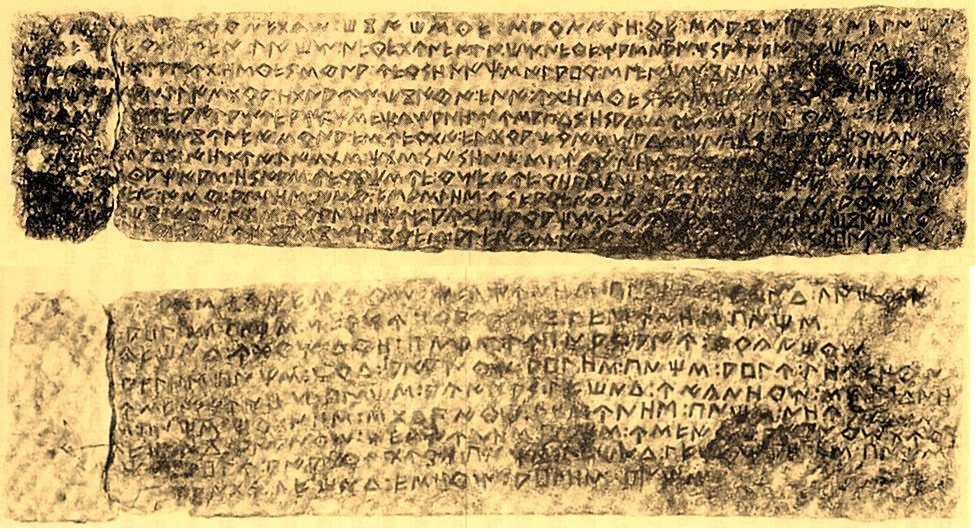Taranis
Elite member
1- E-Keltoi is really not a reliable source : how can they advance 3/4, majority..Bullshit. Celtic culture disappear southern of the Garonne river, it has no reason that it suddenly re-appears in Iberia, by magy...In "non-celtic" France too (southern of the Garonne river) , there was a Celtic print, but not enough to call them "Celtic peoples".
2 - Links between genetics and culture has never been proved. They are just extrapolations.
I disagree. If by "Celtic" culture disappearing south of the Garonne you mean "Gaulish" culture, this is correct, but the existence of Celtic presence in Iberia is solid. How do you explain the hundreds of Celtiberian inscriptions from the upper Ebro and Duero river areas? Celtiberian is, apart from Gaulish, the best-attested ancient Celtic language. Furthermore, Celtiberian is a Q-Celtic language (akin to Irish in that respect), which additionally shows archaisms that are absent in most other Celtic languages. If the Celtiberians had been recent immigrants, Celtiberian would have been P-Celtic and much closer to Gaulish, but it's clear that the Celtiberian language must have diverged from the other Celtic languages significantly earlier, meaning that the Celtiberians were definitely NOT recent immigrants. Below, an example of a Celtiberian inscription:

- In addition, we have the attestation of the Lusitanian language in the Tejo river area, which although scarcily attested was clearly an Indo-European (although not Celtic) language. It's perfectly reasonable to assume that the Lusitanians represent an earlier wave of Indo-Europeans that arrived in the outmost West of Iberia before any Celtic-speaking people did.
- Gallaecia is interesting because it has a mixed Celtic/Lusitanian typonomy, suggesting a more recent Celtic influence over a Lusitanian substrate. In my opinion, Gallaecia is one of the few places on the Iberian penninsula where the "recent immigrants" notion might be applied, but nothing changes about the fact that this area was already firmly Indo-European.





